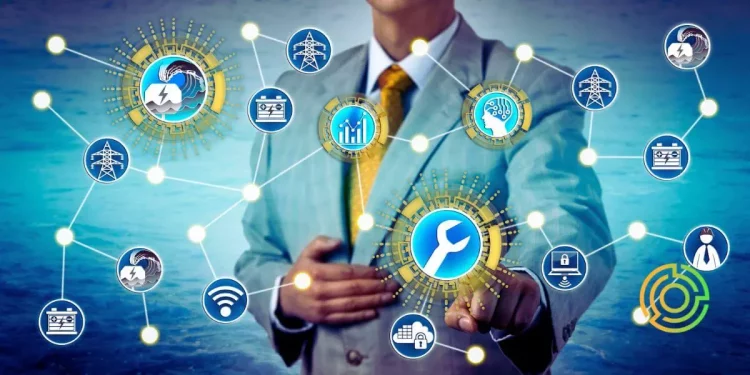In recent years, the world has seen a surge in the development and popularity of decentralized autonomous organizations (DAOs).
These organizations are a novel way for groups of people to pool their resources and coordinate actions toward a common goal without the need for a central authority or intermediary.
Decentralized Autonomous Organizations, or DAOs, have become a hot topic in the blockchain and cryptocurrency world. In this guide, we’ll dive into everything you need to know about DAOs, including their history, how they work, and their potential benefits.
What is a DAO?
A DAO is a decentralized organization that is run by rules encoded as computer programs called smart contracts. These smart contracts are stored on a blockchain, which is a distributed ledger that allows for transparent and secure transactions.
DAOs are designed to be autonomous, which means that they operate without the need for a central authority. Instead, decisions are made by the members of the DAO, who have voting power based on the number of tokens they hold.
The History of DAOs
The concept of a DAO was first introduced in 2013 by a group of developers who were interested in creating an organization that could operate without the need for a central authority.
This organization, called “The DAO,” was designed to be a decentralized venture capital fund that would invest in blockchain projects.
Unfortunately, The DAO was hacked in 2016, which led to the loss of millions of dollars worth of Ether. This incident led to a hard fork of the Ethereum blockchain, which resulted in the creation of Ethereum Classic.
Despite this setback, the concept of DAOs has continued to evolve and has become an increasingly popular way to build decentralized organizations.
How Does a DAO Work?
DAOs operate through a series of smart contracts that define the rules and regulations of the organization.
These smart contracts are executed by the members of the DAO, who are incentivized to act in the best interests of the organization.
Members of DAO hold tokens, which represent their ownership and voting power in the organization. These tokens can be bought, sold, and traded on cryptocurrency exchanges.
Decisions within a DAO are made through a democratic process, where members have the ability to propose and vote on proposals.
These proposals can range from investment decisions to changes in the rules and regulations of the organization.
Once a proposal is approved by the majority of members, it becomes part of the DAO’s operating code.
DAOs can be used for a wide range of purposes, from managing decentralized finance (DeFi) protocols to governing online communities.
One of the most well-known examples of a DAO is the Ethereum-based DAO, which was created in 2016. The DAO was a venture capital fund that allowed members to invest in startups using cryptocurrency.
However, it was hacked, and millions of dollars were stolen. The incident highlighted the potential risks and drawbacks of DAOs and led to increased scrutiny of their operations.
The Benefits of DAOs
One of the key benefits of DAOs is that they allow for decentralized decision-making, which can lead to a more democratic and fair system.
Additionally, DAOs can be used to build decentralized applications, or dApps, which can be used to create new and innovative products and services.
Another benefit of DAOs is that they can be used to provide funding for projects. This can be especially useful for startups and small businesses that are looking for alternative ways to raise capital.
DAOs offer several potential benefits over traditional organizations. One of the most significant benefits is their ability to operate without a central authority or intermediary, making them more transparent, efficient, and resistant to censorship or corruption.
They also provide a way for individuals to participate in collective decision-making and to have a greater say in the governance of their communities or industries.
However, DAOs also face several challenges and risks. One of the biggest challenges is the lack of legal clarity around their operations. DAOs are not recognized as legal entities in most jurisdictions, making it difficult to enforce their rules and regulations.
This lack of legal clarity also makes it challenging to hold individuals accountable for their actions within the organization. Additionally, DAOs are vulnerable to hacks and exploits, as seen in the Ethereum-based DAO incident in 2016.
Finally, the token-based governance system used by DAOs can lead to the concentration of power and influence in the hands of a small group of members, which can undermine the organization’s democratic principles.
Conclusion
DAOs are a new and exciting way to build decentralized organizations that operate without the need for a central authority.
By using smart contracts and blockchain technology, DAOs offer a transparent, secure, and democratic way to make decisions and provide funding for projects.
As the world of blockchain and cryptocurrency continues to evolve, we can expect to see more and more DAOs being created to tackle a wide range of challenges and opportunities.
While DAOs offer several potential benefits over traditional organizations, they also face several challenges and risks.
As the popularity of DAOs continues to grow, it will be important to find ways to address these challenges and ensure that they operate in a safe and responsible manner.
Follow us on our social networks and keep up to date with everything that happens in the Metaverse!
Twitter Linkedin Facebook Telegram Instagram Google News











































